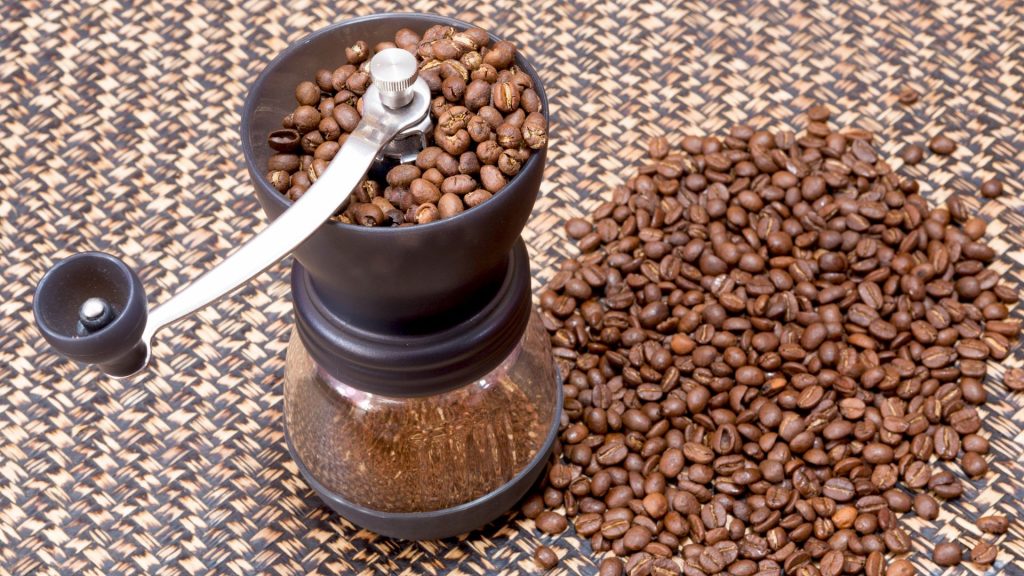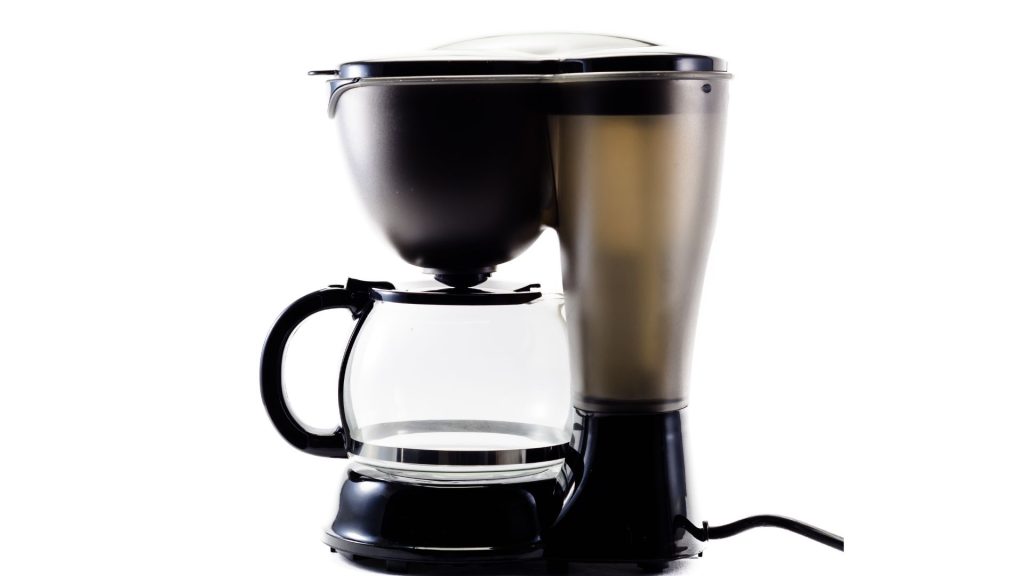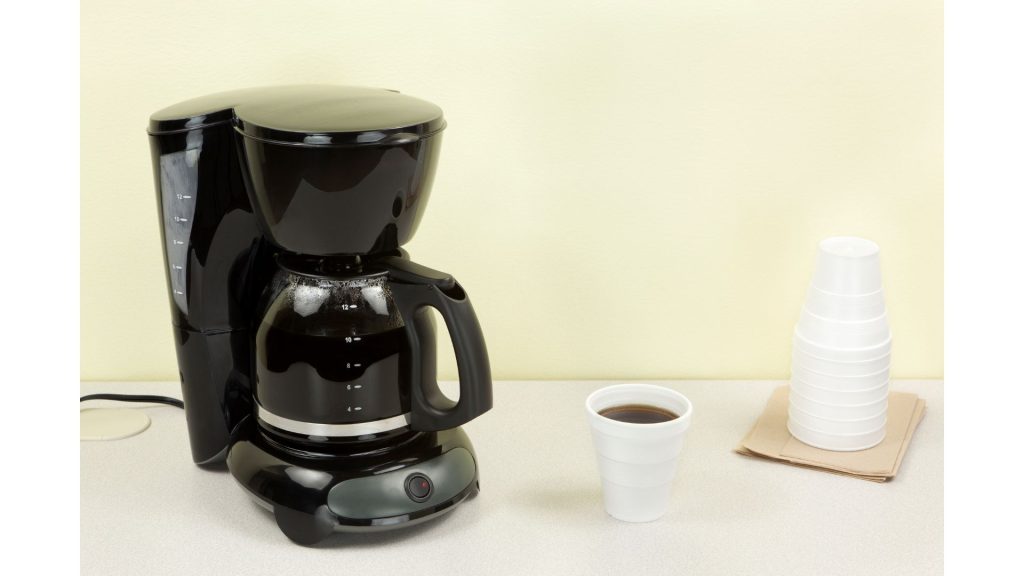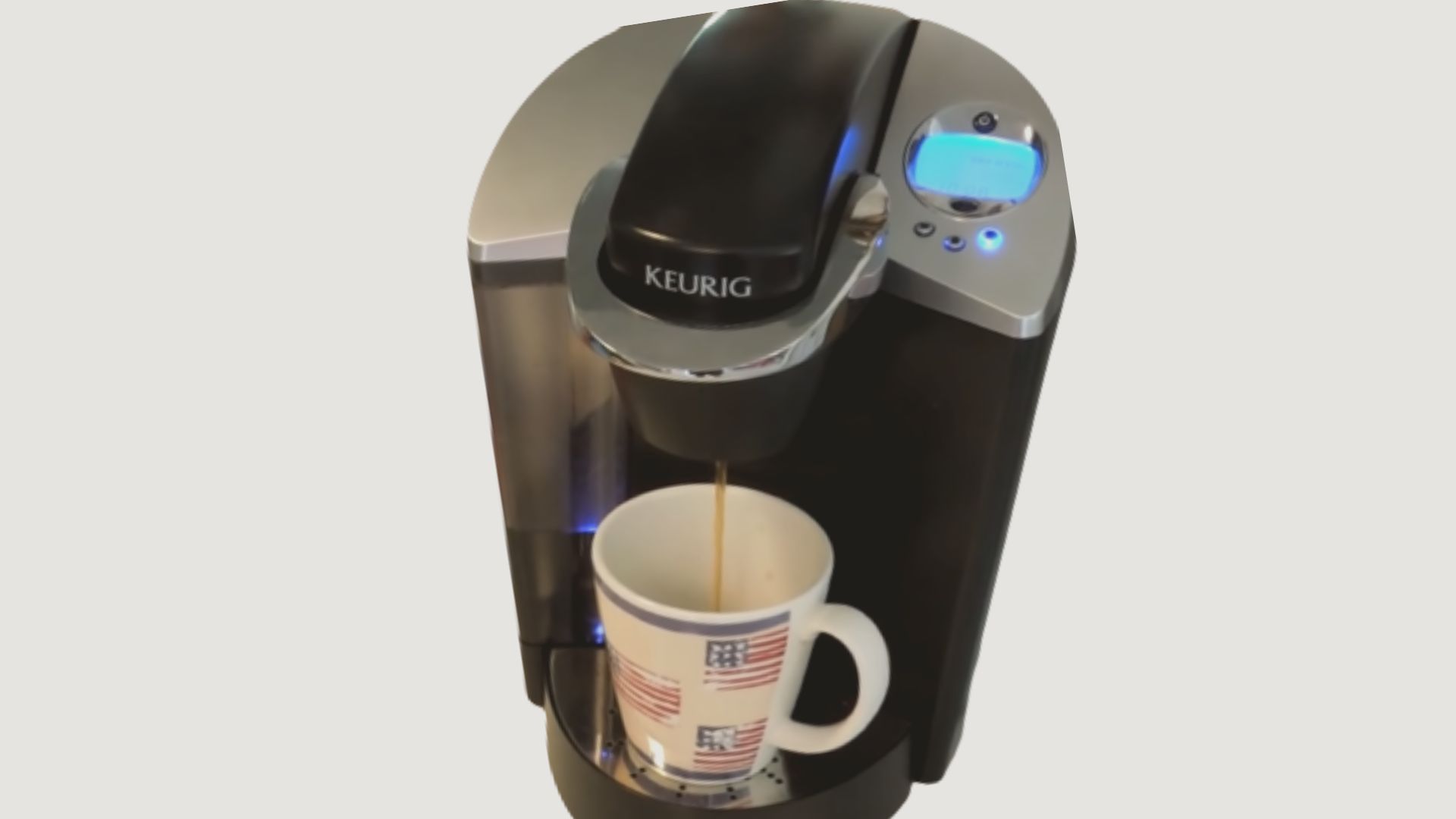A Keurig can make noise for various reasons, including one or more of the following:
1). Grinder

Do you know how a coffee maker makes coffee? It starts by grinding beans. As you’ve probably noticed, the coffee maker grinds a lot of beans within seconds. This process generates noise because beans are sturdy.
Even if you have the most efficient coffee maker on the market, you can’t grind beans quietly. The noise from the grinder is normal. It shouldn’t concern you unless the grinder suddenly becomes louder than usual.
2). Boiler

The boiler is just as crucial to the coffee maker’s operations as the grinder because the appliance uses hot water to make your coffee. However, like the grinder, the boiler is not silent. Admittedly, the boiler won’t make as much noise as the grinder.
Nonetheless, it generates a noticeable buzzing or humming sound. Once again, this noise is normal and shouldn’t concern you unless it suddenly becomes louder than usual.
3). Vibrations
Keurig coffee makers vibrate. These vibrations are too minuscule for you to notice. However, they become obvious when you place the Keurig on a hard, uneven surface. Some surfaces are louder than others. Find out what the Keurig is sitting on and remove or cushion it to eliminate the vibrations.
4). Clogging
You need to descale your Keurig every few months (3 to 6). A failure to do so allows the mineral build-up to create blockages in the machine. Clogged machines are louder and less efficient. Depending on the surface below, they will also produce a more noticeable rattling sound because of the vibrations.
5). Age
Keurig coffee makers are supposed to make noise because of the grinder, boiler, and even the water entering the reservoir. However, those sounds can become even louder as the machine ages.
According to Sips and Tips, coffee machines have an average lifespan of 5 to 10 years. Keurig machines are renowned for their so-called quiet brew technology. But you can’t expect that technology to deliver the same results after ten years.
As the years go by, the machine’s parts will wear out until the noise becomes too loud for you to ignore. Take these sounds as a sign that you need to replace the coffee maker.
6). Decompressing
You can also blame owl noises on decompression. This is where the Keurig machine ejects excess air. In other words, this sound is not a cause for concern unless it unexpectedly becomes louder than usual.
7). Keurig Pumping Water
You may hear some noise as the Keurig coffee maker pumps water. But if you notice a grinding sound, the motor is trying and failing to pump water because of a malfunction in its operations or air in the machine.
If you have an older device, this may happen every time you completely deplete the reservoir. If the motor is broken, you can’t fix it yourself. Get an expert.
8). Loose Components
Something in the Keurig machine is loose. These devices have various moving parts. Therefore, like the broken motor, you need an expert to diagnose this problem. A technician can analyze every element until they find the loose part. Loose components lower the machine’s efficiency.
9). Factory Defect
You may have a machine with a factory defect. A contributor to this best buy thread bought a Keurig that started humming and buzzing. When he consulted Keurig, they told him his machine had a known problem and sent a replacement.
You may have a similar issue. Your Keurig coffee maker may produce strange sounds because of a factory defect. You won’t know until you contact Keurig.
10). Debris
Dirt and debris in the coffee maker should concern you. First, it will debilitate the machine’s operations, making it slower. Secondly, your coffee will become bitter. Third, you may notice annoying stains.
Different Noises Keurig Makes And Its Troubleshooting Tips

As you’ve now noticed, some Keurig sounds are perfectly normal. But how can you tell? The guide below will help you:
Keurig Making Clicking Noise
- The machine has a mineral buildup. The rate at which this happens depends on the hardness of the water in your area.
- The tank can expand as the temperature rises, producing a sound people occasionally describe as popping, clicking, and clacking.
- The exit tube is blocked.
- Is the coffee maker connected to a GFCI? If so, the GFCI is responsible for the clicking.
How To Fix It?
- Use a paper clip to unclog the exit tube. Push the paper clip into the pipe to remove the obstructions.
- You can also use a vinegar/water solution to clean the coffee maker. Pour the solution into the water tank and run the Keurig. Rinse the device thoroughly. Try to descale the machine every three to six months to prevent debilitating blockages.
- If the clicking persists, hire a technician. They can take the device apart to find blockages in places you never even considered checking.
Keurig Making Loud Noise
- The machine is sitting on a hard, uneven surface.
- The Keurig is clogged because of the mineral deposits in the water.
- The machine has exceeded its lifespan.
- It has loose components.
- The broken pump is trying and failing to pump water.
- The water reservoir is positioned incorrectly.
- The tank is empty.
- Air has infiltrated the machine.
How To Fix?
- Even if the water in your area is not that hard, you should descale the machine every few months. This involves adding a white vinegar solution to the reservoir and running the machine. Some consumers use a specialized descaling solution. Consult Keurig’s personnel beforehand in case the descaling solution is dangerous to their device.
- Once you successfully descale a machine with mineral buildup, start using distilled or bottled water to prevent scaling in the future.
- If the Keurig coffee maker is old, replace it. If the machine is damaged, use your warranty to get a replacement.
- Unclog the water line. You can follow the same procedure that descales the device.
- Consult an expert if the clogging persists. The expert can identify and replace loose components and broken pumps and motors.
- Don’t use the coffee maker when the water tank is empty.
Keurig Making Beeping Noise
- Beeping sounds are normal. Like most electronic devices, coffee machines use beeping noises to communicate with you. In fact, your machine probably beeps whenever you press a button.
- The water reservoir is either low or empty. The beeping will persist until you fill it.
- The machine is clogged.
- The Keurig has a glitch.
How To Fix It?
- Refill the water tank.
- Perform a reset. This is where you unplug the Keurig, wait a few minutes, and plug the machine back in.
- Unclog the machine. You can deploy white vinegar or any descaling solution that appeals to you.
- Check the manual to determine whether the beeping is part of an error code. If the machine uses the beeps as an error code, determine their meaning. Your interpretation may vary depending on the number of beeps.
- Make sure the machine has a reliable power source. Are you using an extension cord or power strip? Use a wall outlet. Is the plug secure in the wall outlet? Push it in. Is the power cord frayed? Replace it.
Keurig Making Popping Noise
- The machine has a factory defect.
- The coffee grounds or minerals in the water have created blockages in the machine.
- The Keurig has dirt and debris in the valve and passageways.
- The water level is low.
- The machine has loose components.
- The popping may originate from arcing due to frayed wiring.
How To Fix It?
- Replace a machine with a factory defect. Use your warranty.
- Use a paper clip or toothpick to remove dirt and debris from the valve that allows water into the reservoir.
- Fill the reservoir with a white vinegar/water solution and run a cycle. Rinse the machine thoroughly.
- Replace damaged or frayed wires and plugs.
- Refill an empty tank.
Keurig Making Whistling Noise
- You have a blockage. The machine is forcing the water to flow through a small opening because of a mineral buildup.
- The Keurig has a factory defect.
- The water line has air. This will block the water flow.
- The valve has a blockage.
- If the whistling sounds like hissing, the machine is pulling the last of the water from the reservoir.
- Water vapor may produce a noticeable sound as it enters the suction tubes.
- The valve is faulty.
How To Fix It?
- Use a white vinegar solution or any descaling solution of your choice to descale the machine.
- Use your warranty to replace a Keurig with a factory defect.
- Use a paper clip to remove dirt and debris from the valve.
- You can remove air bubbles by unplugging the machine, removing the reservoir, and shaking the Keurig vigorously with both hands. Another solution involves shutting the machine’s opening hole with your finger and running a water-only brew cycle. Don’t insert a pod.
- Replace a faulty valve.
Keurig Making Squeaking Noise
- The water reservoir is empty, or the level is low. The machine will be loudest as it tries to pull water from the reservoir.
- The valve is faulty.
- The valve is blocked.
- The machine has a mineral buildup. This happens frequently in places with hard water.
- The machine is old.
- The Keurig has a factory defect.
How To Fix It?
- Refill the water reservoir.
- Replace a faulty valve.
- Use a sharp object, such as a paper clip, to remove dirt and debris from the valve.
- Descale the machine. Do this every three to six months to prevent the mineral buildup from causing irreversible harm. You should also replace tap water with bottled or distilled water.
- Keurig coffee makers eventually wear out. Replace yours if you’ve had it for ten or more years. Some people replace their coffee makers every five years. Fixing the defective components will only provide a temporary reprieve. Eventually, the device will fail completely. You should replace it before this happens.
- If your device has a factory defect, Keurig will replace it for free. This assumes that you did not disassemble the machine. Tampering with the coffee maker may void your warranty. You should only hire a third-party technician to take the device apart if your warranty has expired.

